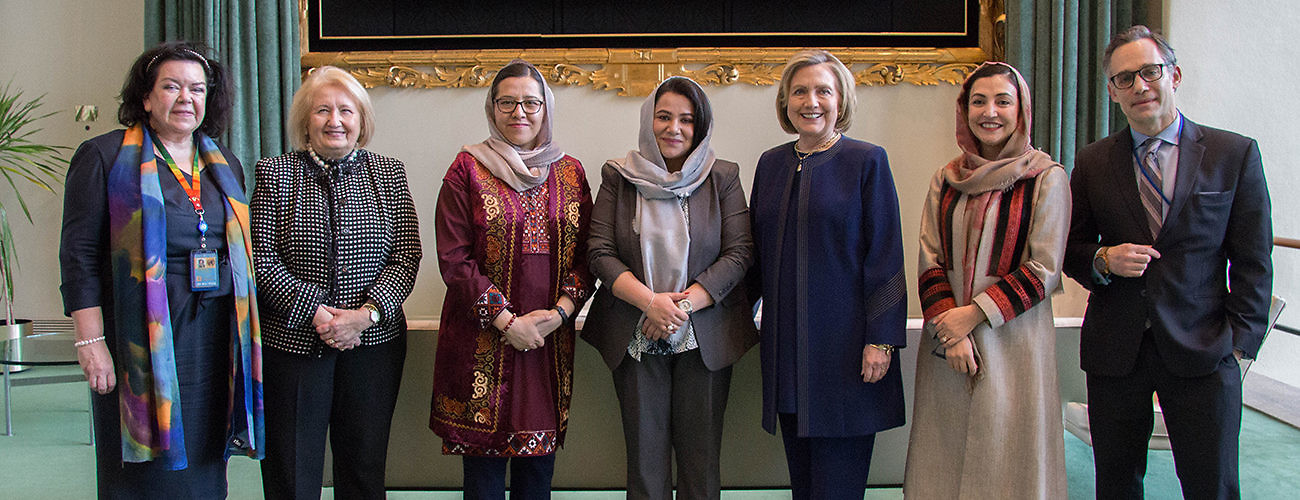On March 10th, IPI Vice President Adam Lupel took part in a panel discussion held by the UN Group of Friends of Women in Afghanistan, led by Afghanistan and the United Kingdom, titled: “A Critical Moment for Afghan Women: The Intra-Afghan Peace Process.” The event was co-sponsored by the Georgetown Institute for Women, Peace and Security.
The event included extraordinary remarks from Afghan women, including Ambassador Adela Raz of Afghanistan; Nargis Nehan, Former Minister of Mines, Petroleum and Industries of Afghanistan; and Dr. Orzala Nemat, Director of the Afghanistan Research and Evaluation Unit. The First Lady of Afghanistan, Rula Ghani, delivered a video message from Kabul.
Former Secretary of State Hillary Rodham Clinton, a longtime champion of women’s rights in Afghanistan, was the keynote speaker. An equal champion on the panel was United Kingdom Ambassador to the UN Karen Pierce, who was the UK Special Representative for Afghanistan and Pakistan June 2010-June 2011.
The discussion focused on protecting and enhancing the equal rights of women granted under the Afghan constitution, including their central role in peace negotiations and ensuring that any prospective outcomes in the peace process recognize, protect, and promote the role of women in all spheres of life.
The event was moderated by Ambassador Melanne Verveer, Director of the Georgetown Institute for Women, Peace and Security. Over 40 UN ambassadors were in attendance.
In his remarks, Dr. Lupel said, “Women’s substantive involvement in peace processes increases their potential for success and durability, because if women meaningfully participate, peace processes are less likely to be simply a negotiation about power among men with guns, and more likely to include broader issues about how to build a sustainable peaceful society.
“So going forward the question becomes how to ensure women play a central role in the Intra-Afghan peace process and how can the international community help?” he said.
Drawing on the expertise of IPI’s Women, Peace and Security program, Dr. Lupel recommended an “ecosystem” approach. This means supporting not just women’s access to the negotiating table, but also including them in the design of the whole peace process and the environment surrounding it. He offered these two points:
1) Focus on what works: There has been a tremendous amount of progress on women’s inclusion in Afghanistan over the last twenty years. As is evident on this panel and the Afghan diplomatic corps this has produced a wealth of human capital and already active networks that will provide important resources in the coming period. I think we all know this, but suffice it to say we don’t have to start from scratch.
2) Be creative and persistent. This will be a long, complicated process with many ups and downs. And a creative, persistent approach to ensuring that women’s voices are heard will be necessary.
Dr. Lupel closed his remarks by quoting a tweet from a representative of Afghan youth in Kabul, Aisha Khurram, the Afghan Youth Rep to the UN.
She writes, “Afghan youth and women’s priorities are the priorities of all Afghans. These priorities must be included in the peace process not because they will benefit women, but because they will benefit everyone.”
Related Content
Full remarks from IPI Vice President Adam Lupel








